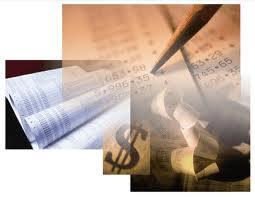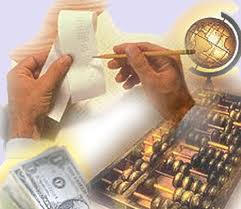Choosing a Tax
Preparer
Here’s our Tax Preparer Honor Roll list
ENTER
Tax Preparer School
Homepage
Not anyone can call himself or herself a tax preparer. Not just anyone off the
street can be a tax preparer for a fee. You want to find the right one, and
this individual does not have to be a certified public accountant. Although CPAs
and Attorneys have passed qualifying state exams and met specific education and
experience in handling accounting work, they are not always as knowledgeable in
taxation as a tax preparer. This is because they do not always specialize in
doing taxes like a tax preparer does. A tax preparer prepares only taxes and
some accounting work that has to do with getting the records together for the
ultimate goal of reporting to the IRS and the state at the end of the year. An
EA is a tax preparer licensed by the IRS through a special enrollment exam. Now
a tax preparer is also an individual that is registered through the IRS and must
pass a special examination. Many taxpayers assume that all CPAs are 1040
experts. A CPA or an attorney is presumed to be knowledgeable and competent in
preparing a 1040, but you cannot tell this by their certification alone if they
are thoroughly trained, even if they have a PTIN. Not all CPA’s specialize in
doing individual income tax returns, so ask them before you set up an
appointment with them instead of a tax preparer.
with getting the records together for the
ultimate goal of reporting to the IRS and the state at the end of the year. An
EA is a tax preparer licensed by the IRS through a special enrollment exam. Now
a tax preparer is also an individual that is registered through the IRS and must
pass a special examination. Many taxpayers assume that all CPAs are 1040
experts. A CPA or an attorney is presumed to be knowledgeable and competent in
preparing a 1040, but you cannot tell this by their certification alone if they
are thoroughly trained, even if they have a PTIN. Not all CPA’s specialize in
doing individual income tax returns, so ask them before you set up an
appointment with them instead of a tax preparer.
Your best bet will probably be to find an independent tax preparer that is
qualified by the IRS or the state to do tax work. There are CPA’s that do
specialize in tax work. However, there’s the individual tax preparer, enrolled
agent, and the tax preparer in national tax preparation chains like H&R Block,
Jackson-Hewitt, and Liberty Tax Service. A tax preparer from these national tax
preparation chains usually has the same qualifications as the independent tax
preparer down the block. The type of tax preparer mentioned here goes through
the same rigid qualifications and tax preparer education as the national chain
ones. Although there are different levels of expertise, such as that of an
enrolled agent, whom has passed an IRS exam, every tax preparer possesses
different level of expertise. Sometimes you will be tempted to go with the
title, but you should also talk to the tax preparer first and find out what
are their qualifications and experience. It is a good idea to ask your potential
tax preparer questions about their work. Do you have a tax preparer
identification number? What are your credentials? What kind of clients do
you usually work with? Can you give me a price quote? Do you provide help in
case I get audited?
When choosing a tax preparer make sure the he or she has the appropriate
qualifications. A good tax preparer will not only prepare your return
 correctly
but will also save you money. There are many questions to ask a prospective tax
preparer. Have you registered with the IRS, and do you
have a Tax Preparer Tax
Identification Number? This is probably the most important question to ask. Only
a tax preparer who has registered with the IRS and a tax preparer who has
received a PTIN is allowed to legally be a tax preparer for a fee. There are
other certifications a tax preparer may need to have, depending on their state.
What are your credentials? Tax preparers who register with the IRS and pass a
test will be designated a Registered Tax Return Preparer. Tax preparers must
complete a minimum of 15 hours of continuing tax preparer professional education
in federal taxation each year to maintain their IRS qualification. Supposedly,
if you hire a tax preparer without the proper licensing, the IRS plans to
aggressively fine you.
correctly
but will also save you money. There are many questions to ask a prospective tax
preparer. Have you registered with the IRS, and do you
have a Tax Preparer Tax
Identification Number? This is probably the most important question to ask. Only
a tax preparer who has registered with the IRS and a tax preparer who has
received a PTIN is allowed to legally be a tax preparer for a fee. There are
other certifications a tax preparer may need to have, depending on their state.
What are your credentials? Tax preparers who register with the IRS and pass a
test will be designated a Registered Tax Return Preparer. Tax preparers must
complete a minimum of 15 hours of continuing tax preparer professional education
in federal taxation each year to maintain their IRS qualification. Supposedly,
if you hire a tax preparer without the proper licensing, the IRS plans to
aggressively fine you.
An Enrolled Agent is not an employee or representative of the IRS; he or she is
an independent tax preparer who is “enrolled” to act as a taxpayer’s “agent” in
dealing with the Internal Revenue Service. As previously mentioned, EAs must
pass a test on federal tax topics that is composed of three parts. They also
must maintain an average of 16 hours of continuing tax education each year.
Eventually only the RTRP and EA will have proven their competence and currency
in federal tax law so choosing this kind of tax preparer may be your best bet.
What type of returns do you prepare? You usually need a tax preparer familiar
with the unique tax benefits and deductions available for your trade, profession
or business, and for any special activity, situation or circumstance that
applies to you. A tax preparer also specializes in returns for active investors,
gamblers, renters, the self-employed or members of a specific profession. Ask
your co-workers or friends in same field to recommend a good tax preparer.
Find out of the training and experience of the tax preparer. For example, good
answers from your tax preparer would be “I learned to be a tax preparer by
filling out 1040s as an “apprentice” to a veteran tax preparer. I worked as a
small business consultant and tax preparer for a prominent international CPA
firm. Each year I take from 16 to 32 hours of continuing tax preparer
professional education in federal and state tax topics”.
What will the tax preparer do for you in the return he or she prepared for you
is questioned or audited? Will the tax preparer respond to letters of inquiry
from the IRS or state tax agencies? Will the tax preparer attend the audit with
you, or in your place as your representative? If the IRS or state discovers an
error on the return that was the fault of the tax preparer, will he or she pay
any penalty assessment? You should also find out if there will be additional
fees when the tax preparer has to correspond with the IRS or state or attend an
audit.
Is the tax preparer available during the year if I need help? Does the tax
preparer pack up and disappear during the “normal” year, remaining unreachable
until the next tax season, or will the tax preparer be around to answer any tax
questions or provide tax planning advice and assistance with a financial
transaction you are considering? Your tax preparer should be available to answer
questions or provide tax advice at other times of the year. Be a tax preparer
all year, not just in tax season. Currently it is against the tax code for the
tax preparer to just disappear after tax
 season. The tax preparer must maintain
the contact information so the tax client can contact him or her after tax
season if problems do arise.
season. The tax preparer must maintain
the contact information so the tax client can contact him or her after tax
season if problems do arise.
A referral from a friend or someone else you trust is usually the best way to
find a tax preparer to help you with your return, but an online search or
visiting the website that license the tax preparer will do. The IRS has
published or will publish a list that identifies a tax preparer as qualified to
do tax work. CTEC (California Tax Education Council) has a similar certified tax
preparer list on their site (www.ctec.org).
Besides looking for the usual qualifications of a tax preparer, you also want to
look for other things. Things such as how friendly are they with their
customers. Do they act like they just want to get the work out of the way and
treat you like another number or are they friendly to you and make you feel
welcome? Could this tax preparer be someone you can eventually be friends with
and be your tax preparer for years ahead? These are also important items to
consider in a tax preparer.
Copyright © 2012 [Hera's Income
Tax School]. All
rights reserved.
Tax school page revised:
11/14/13
 with getting the records together for the
ultimate goal of reporting to the IRS and the state at the end of the year. An
EA is a tax preparer licensed by the IRS through a special enrollment exam. Now
a tax preparer is also an individual that is registered through the IRS and must
pass a special examination. Many taxpayers assume that all CPAs are 1040
experts. A CPA or an attorney is presumed to be knowledgeable and competent in
preparing a 1040, but you cannot tell this by their certification alone if they
are thoroughly trained, even if they have a PTIN. Not all CPA’s specialize in
doing individual income tax returns, so ask them before you set up an
appointment with them instead of a tax preparer.
with getting the records together for the
ultimate goal of reporting to the IRS and the state at the end of the year. An
EA is a tax preparer licensed by the IRS through a special enrollment exam. Now
a tax preparer is also an individual that is registered through the IRS and must
pass a special examination. Many taxpayers assume that all CPAs are 1040
experts. A CPA or an attorney is presumed to be knowledgeable and competent in
preparing a 1040, but you cannot tell this by their certification alone if they
are thoroughly trained, even if they have a PTIN. Not all CPA’s specialize in
doing individual income tax returns, so ask them before you set up an
appointment with them instead of a tax preparer. 
 season. The tax preparer must maintain
the contact information so the tax client can contact him or her after tax
season if problems do arise.
season. The tax preparer must maintain
the contact information so the tax client can contact him or her after tax
season if problems do arise.